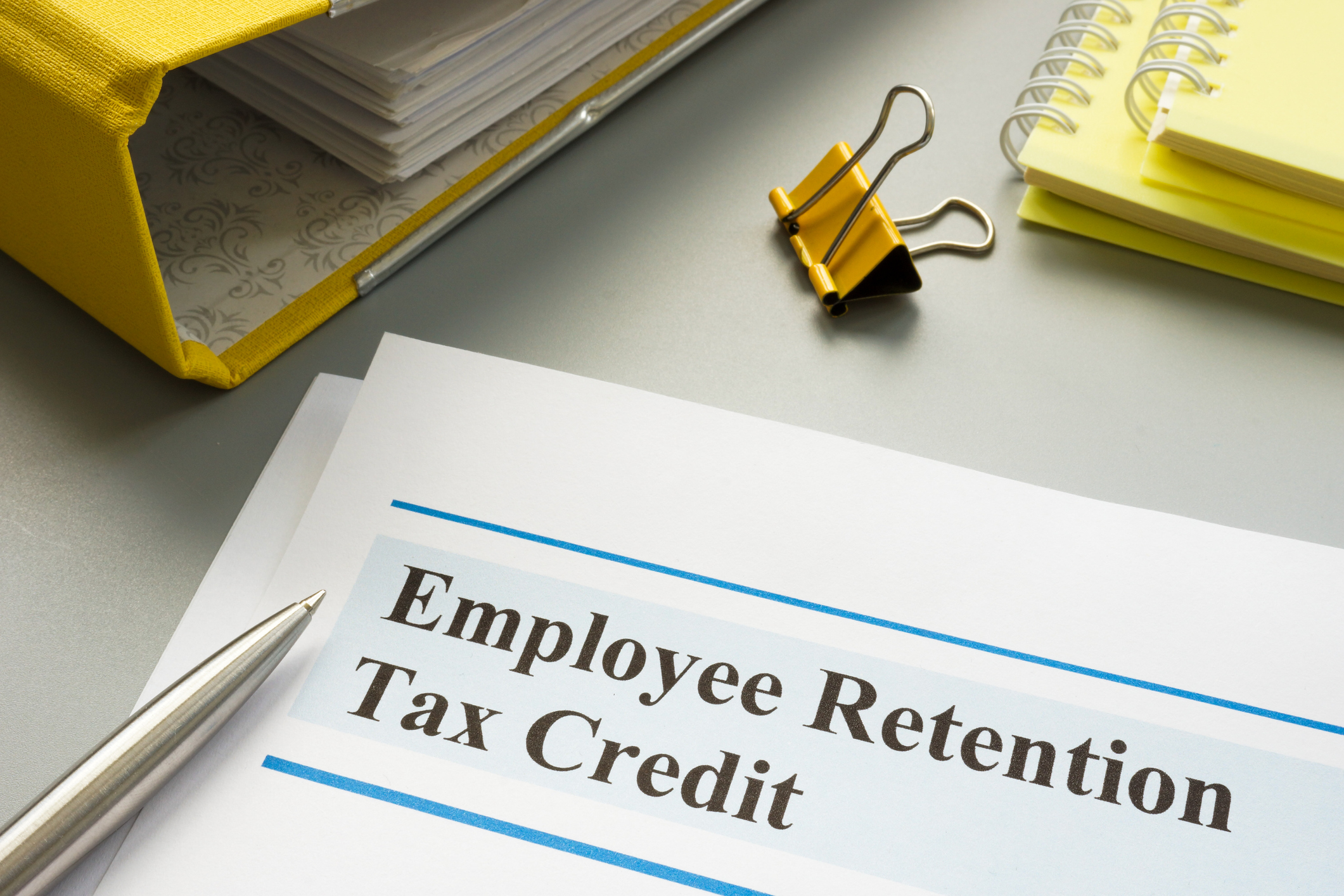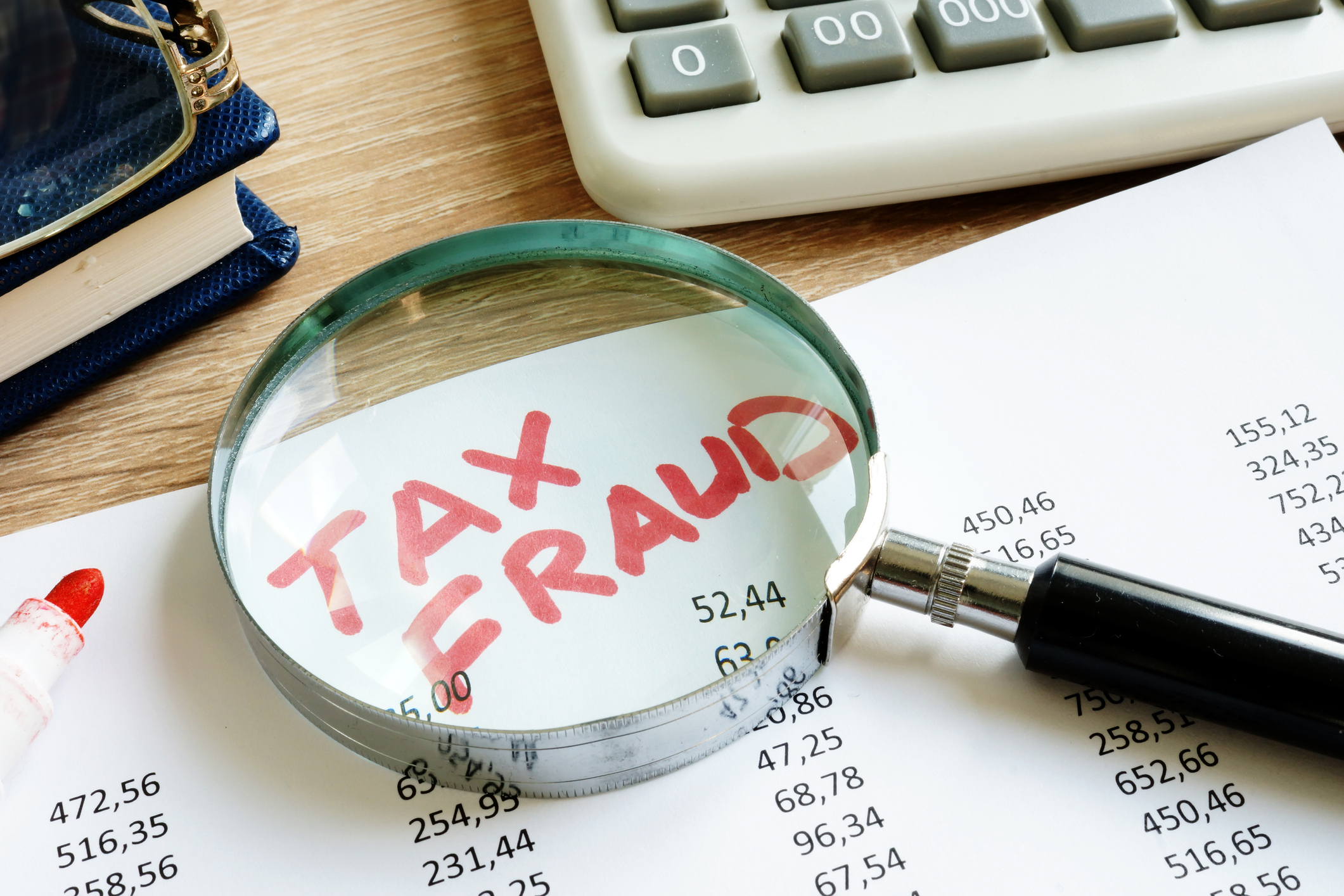The Internal Revenue Service (IRS) recently updated its annual “Dirty Dozen” list, which warns taxpayers about the most common tax-related scams. Although the Employee Retention Credit (ERC) is a legitimate tax credit established by the CARES Act of 2020, the ERC made it to the list this year due to the high volume of fraudulent ERC claims from taxpayers and some ERC promoters.
In the Dirty Dozen list, the IRS warns taxpayers of scammers using the ERC as a fraudulent way to obtain personal identification information, such as employee identification (EINs) and Social Security numbers. Other scammers require payment upfront for their services and then don’t do any work on behalf of their clients. There are even ERC promoters filing claims on behalf of taxpayers who clearly do not qualify for the credit. Or, they purposely file claims with inaccurate numbers.
As a new tax credit – one without a wealth of guidance – the ERC opened an opportunity for scammers. Unfortunately, legitimate companies helping eligible taxpayers claim the Employee Retention Credit are being inappropriately lumped together with the scammers.
Therefore, some eligible taxpayers may miss out on the tax credit because they are fearful of becoming a victim of one of these scams. Choosing the right professional to assist in filing your ERC claim is critical in making sure your claim is both legitimate and accurate.
What is the Employee Retention Credit (ERC)?
The Employee Retention Credit (ERC) was designed to help eligible employers in the United States pay the cost of wages and some employer-sponsored health insurance fees. The ERC is a key component of the Coronavirus Aid, Relief and Economic Security (CARES) Act, which was enacted in March 2020 to create a refundable payroll tax credit. Unlike other COVID-19 pandemic relief programs, the ERC is not a loan and does not need to be paid back.
In 2021, the Employee Retention Credit was expanded as part of the Relief Act of 2021 for the first two calendar quarters of 2021 and then again by the American Rescue Plan Act of 2021 for the third quarter of 2021. The Infrastructure Investment and Jobs Act later clarified specific eligibility rules to allow more employers to qualify for the fourth quarter of 2021.
Although the credit periods have expired, eligible employers can still file paperwork to claim and receive ERC tax credits. In fact, eligible employers have up to three years after the original due date of timely filed payroll tax returns to file an ERC claim.

Understanding Eligibility Criteria for the ERC
Businesses that experienced the following may be eligible to receive the Employee Retention Credit:
- Total gross revenue for quarters in 2020 is at least 50 percent lower when compared to the same quarter in 2019
- Total gross revenue for quarters in 2021 is at least 20 percent lower when compared to the same quarter in 2019
- Business operations started after February 14, 2020, and have average annual gross receipts under $1 million
Your business also may be eligible for the ERC if it faced a full or partial suspension of operations limiting commerce, travel or group meetings due to COVID-19 and orders from a government authority. Taxpayers who own a business may be eligible for one calendar quarter but not another quarter in the same calendar year.
Most Common ERC Scams
Fighting fraud is nothing new to business owners in every industry, from healthcare to retail. Thieves are more sophisticated than ever and take advantage of almost anyone to make money. The ERC is a lucrative tax incentive, and scammers were quick to jump on the opportunity to commit fraud for personal gain. The IRS and tax professionals continue to warn taxpayers to be cautious of Employee Retention Credit scams like the following:
Non-Qualified Employee Retention Credit Advisors
As soon as the ERC was passed into law, many tax professionals recognized the need for guidance to navigate the complex tax law and help eligible taxpayers receive the credit. At the same time, many non-qualified scam artists recognized the ERC as an opportunity to make quick money. To a nonqualified advisor, any business may appear to qualify for the ERC. It takes a trained professional – even a team of them – to carefully guide a taxpayer through the process of filing a responsible and accurate claim.
False or Misleading Fee Structures
Employee Retention Credit scammers are misrepresenting themselves as an advocate for the taxpayer. They typically make improper assurances about taxpayer eligibility and intentionally ignore proper credit computation rules to maximize their fees.
How does this work? It’s normal for a fee to be contingent upon the amount of the ERC refund, but scammers will charge a large and often nonrefundable fee upfront. They may delay or not even file the claim if they know it will be rejected. If the scammer can artificially inflate the initial “promise” of a certain claim amount, they can increase their fee.
Identity Theft
Identity theft is a longstanding problem, and the ERC provides yet another opportunity for scammers to use it. The documents to file a claim for the ERC require sensitive, personally-identifiable information about a business and its employees. Under the guise of being an ERC professional, scammers may attempt to steal an employer’s personal information to file for Employee Retention Credits for themselves using that data.
Inflation of Qualified Wages Paid
One ERC scam has to do with qualified wages paid. In these types of cases, an employer inflates his or her employees’ qualified wages paid to increase the amount of their ERC business tax credits.
Employers are responsible for their own tax returns – no matter what. Even if an employer is not part of an Employee Retention Credit scam, improperly claiming it might result in having to repay the credit – with penalties and interest.

8 Tips To Avoid ERC Scams
You can avoid these Employee Retention Credit scams by following some simple tips. When in doubt about the ERC program, contact a qualified tax professional or the IRS directly.
1. Avoid a Company That Makes Guarantees at the Outset.
Be cautious of any ERC promoter that guarantees your eligibility or the amount of your claim. ERC eligibility calculations have many subjective components, making a guarantee deceptive. A premature guarantee in advertising material or initial conversations is evidence that a promoter is most likely not committed to ethical conduct in filing your claim.
Similarly, be wary of ERC promoters definitively stating that you are eligible for a specific credit amount – without knowing how your business was impacted by the COVID-19 pandemic. Your ERC eligibility is strongly tied to the impact of COVID-19 on your business, including loss of revenue, changes to your business operations, and your participation in other government pandemic relief programs.
StenTam will not guarantee a company’s eligibility or how much it will receive.
2. Talk to a Real Person.
Fraudulent ERC promoters will avoid phone or live conversations. Instead, they will try to limit all communications to email, text, or chatbots. The complexity of ERC eligibility and credit calculations requires live interaction. If a promoter is unable to do so, you should avoid working with them.
3. Make Sure the Email Addresses Match the Individual and Company Names.
One of the telltale signs you’re dealing with a fraudulent business is if the company or its representative’s name is different than their email address. Make sure those match.
Also, never work with an ERC filer who is using a personal email account, such as Gmail or Hotmail. If they are not paying for a domain name, they may not be a trustworthy business that will be around longer than the ERC credit.
4. Don’t Work with a Company That Inflates Claims.
Reputable tax professionals use your ERC claim to collect fees contingent on the amount of your claim. Scammers often will intentionally inflate the amount of your claim and their fees by overstating the wages of qualifying employees. Or, they will falsify payroll records to support their inflated claim.
You should never work with a company that is encouraging you to submit an inaccurate filing. Again, taxpayers are always responsible for the information reported on their tax returns. Improperly claiming this credit could result in taxpayers having to repay the credit – along with potential penalties and interest.
5. Get Your Agreement in Writing.
A reputable ERC filer will be able to put the terms of your service in writing. They should have a standard contract ready if they have been doing any large volume of business. If the company is willing to put its agreement in writing, that’s not necessarily a guarantee of legitimacy. But, a refusal to offer a contract is a red flag.
6. Only Work with Companies That Offer Audit Protection.
If an ERC promoter won’t offer audit protection, they either do not stand behind the quality of their work or don’t plan on being in business long. Only work with companies that provide audit protection.
7. Do Your Research.
Before you commit to working with a company, research its reputation. You can visit the Better Business Bureau to see the company’s rating and read any reviews or complaints. Do not be afraid to ask how long the company has been in business, how many filings they have processed, and what other types of tax credits they are able to support. If the scope of their service is beyond the ERC, that increases the likelihood that they plan on being in business for a while.
8. When in Doubt, Contact the IRS.
Some scammers may contact you, claiming to be from the IRS. If you are contacted by text or email from someone purporting to be from the agency, do not click on any links. If you receive a letter that looks suspicious, don’t scan any QR codes in it.
You can forward these emails directly to the IRS at [email protected] or call the IRS at 800-829-1040 to discuss your concerns. You can also report IRS imposter scams to the Treasury Inspector General for Tax Administration by calling 800-366-4484.
How Can You Be Sure You’re Filing for Your ERC With Confidence?
As the IRS notes, if someone’s offer to help you with claiming your ERC seems too good to be true, it probably is. That’s why the agency has been warning about these scams for months.
It’s not uncommon for ERC scammers to advertise that all employers are eligible – without evaluating an employer’s criteria. Others tell employers that they are eligible to claim the ERC on wages that were reported as payroll costs in obtaining Paycheck Protection Program (PPP) loan forgiveness, even when that’s not the case.
StenTam is committed to compliance. By making compliance a priority, we set ourselves apart from the type of scammers on the IRS Dirty Dozen list. Our team of legal and tax professionals will support your business by accurately calculating and competently filing your ERC claim.
Unlike ERC scammers and some CPA firms, StenTam:
- Processes your filings in an average of 13 days
- Offers a compliance portal that protects your sensitive organizational information
- Leverages a compliance questionnaire to ensure all critical items are captured
- Follows up with the IRS for you to ensure your claim is being processed and tracked
- Offers access to Advanced Funding in under 72 hours
- Uploads payroll automatically via API integrations
As a compliance first tax technology firm, we’ll provide you with first class services. You’ll work with a dedicated client support specialist who will assist you during the filing process. Our compliance team will provide support before and after your file your claim, including referring you to independent outside tax professionals (former IRS trial attorneys) when necessary.
Contact StenTam today to learn more about how the ERC can improve your company’s bottom line.
FAQs
What are the Internal Revenue Service Deadlines for Claiming the ERC?
- Eligible employers who want to claim ERC funds for Q2, Q3, or Q4 in 2020 must submit their 941-X by April 15, 2024.
- Eligible employers who want to claim ERC funds for Q1, Q2, or Q3 in 2021 must submit their 941-X by April 15, 2025.






